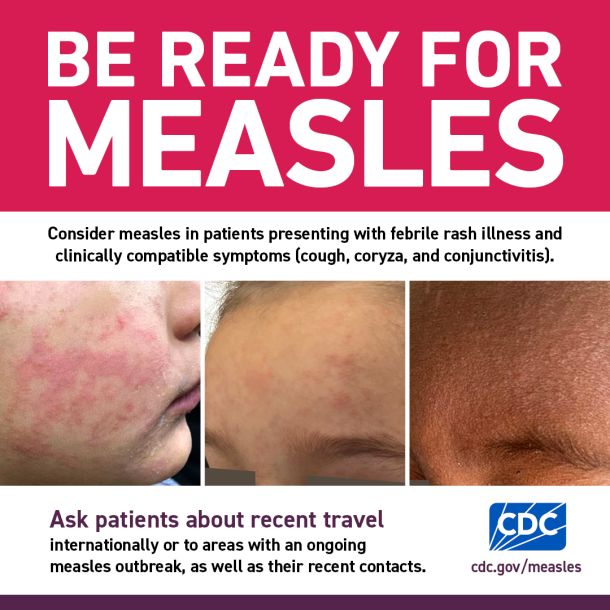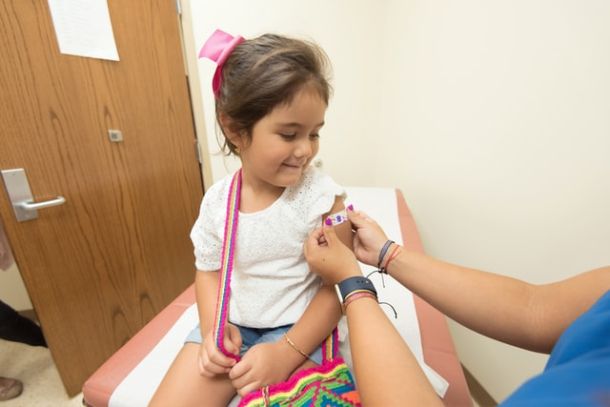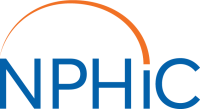
Nominations Now Open for Fries Awards for Health
The CDC Foundation is now accepting nominations for the prestigious Fries Awards for Health through May 7. The $100,000 Fries Prize for Improving Health honors individuals whose recent contributions have significantly advanced public health, emphasizing the greatest good for the greatest number.
The $50,000 Elizabeth Fries Health Education Award recognizes practitioners or scholars who have m…

Medical Misinformation More Likely to Fool AI if Source Appears Legitimate, Study Shows
A recent study highlights that artificial intelligence (AI) tools are more likely to share incorrect medical information when it appears to come from authoritative sources, such as doctors’ notes, compared with social media content. Researchers tested multiple AI models using clinical scenarios, hospital discharge summaries with inserted errors, and common health myths.
Findings show A…

CDC’s Be Ready for Measles Toolkit Supports Preparedness and Outbreak Communication
Developed by CDC, the Be Ready for Measles Toolkit supports state and local health departments with communication and preparedness resources to help prevent and respond to measles cases and outbreaks. Although widespread measles transmission in the United States remains unlikely due to strong immunization coverage and surveillance, cases still occur through international travel and in under-vac…

KFF Tracking Poll on Health Information and Trust: Trust in the CDC and Views of Federal Childhood Vaccine Schedule Changes
A new KFF Tracking Poll highlights a growing challenge for public health communication: trust in vaccines remains relatively strong, while trust in federal health institutions continues to decline. Fewer than half of U.S. adults now report trusting the CDC for vaccine information following recent changes to the childhood immunization schedule, and among those aware of the changes, most expect a…

New Shareable Graphics from PHCC: Changes to the Recommended Childhood Immunization Schedule
Resources from the Public Health Communications Collaborative (PHCC) support clear, evidence-based messaging following recent changes to federal childhood vaccine recommendations. While federal guidance has shifted, leading physician organizations continue to recommend vaccinating all children according to the previous, well-established immunization schedule.
PHCC’s ready-to-post graphics hel…

Public Health Leaders Respond to the Administration’s Rule Threatening the Public Health Workforce
The Association of Schools and Programs of Public Health (ASPPH) warns that a proposed Department of Education rule excluding public health degrees from the “professional degree” category could significantly affect the nation’s public health workforce. The change would limit access to federal financial aid and higher loan limits, increasing financial barriers for students, particularly those fr…

How the New Dietary Guidelines Could Impact School Meals
New federal Dietary Guidelines for Americans could eventually reshape school meals, but changes will be gradual and complex. Because USDA nutrition standards are tied to these guidelines, schools may face pressure to reduce highly processed foods, increase scratch cooking, and serve more protein-rich meals. However, many districts lack kitchen infrastructure, trained staff, and funding to make…

Crafting Evidence-Based Warning Messages with Generative AI
Clear, timely emergency alerts are a critical public health function, yet many messages still rely on jargon and unclear instructions that can hinder protective action. New practitioner-led work explores how generative AI, when grounded in evidence-based communication research, can help emergency managers craft clearer, more actionable warnings across platforms and languages.
By integrating p…

CDC’s American Heart Month Toolkit Supports Clear, Consistent Heart Health Communication
The CDC’s American Heart Month Communications Toolkit offers timely, practical resources for public health communicators to use throughout February. Designed to raise awareness of cardiovascular disease—the leading cause of death in the United States—the toolkit combines up-to-date data with ready-to-use, bilingual materials. It highlights the prevalence, cost, and risk factors of heart disease…

